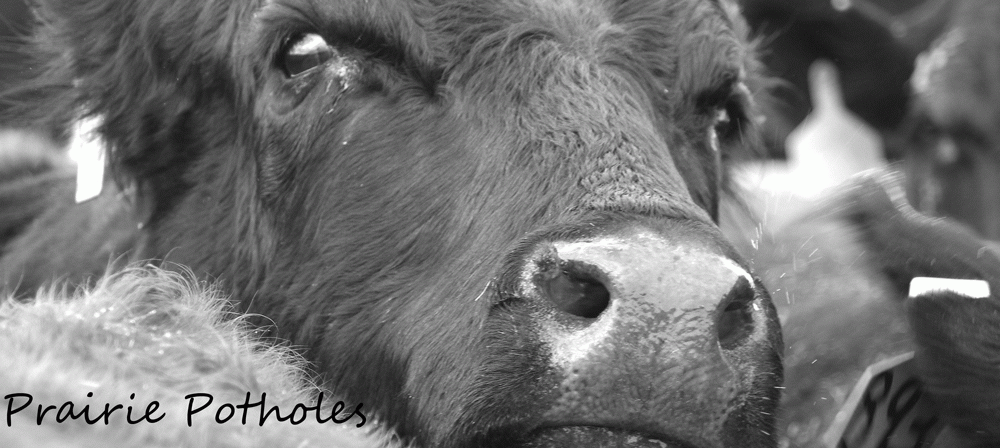A few short weeks ago we were not terribly busy as February is filled with the feeding of cows and the avoidance of crazy cold weather. So we hopped in our vehicle and headed southwest for an extended weekend in West Yellowstone. The high that day as we drove across the prairie and west of the Crazy Mountains was certainly not more than about -12 degrees.
On Friday morning, an almost equally cold day, we bundled and up and boarded a snowcoach for a unique adventure into the Yellowstone caldera. We saw wildlife, thermo features and of course the Old Faithful show. As a friend put it to me when we returned, "Yellowstone is a magical place in the winter."
And it was.
Then we came home, wrestling season started, the calves started arriving and my anticipated winter-time blog post is now more of a spring memory.
However, the past few weeks have left me thinking quite a bit about the majesty of Yellowstone and the wildness that you find there. You hear in the news quite a bit these days about the tragedy of the Yellowstone bison and why the environmentalists are hazing them back in to the park to prevent them from being hunted or rounded up and hauled away. They cry foul against the ranchers.
Being married to a farmer and rancher, and being the good environmentalist that I was trained to be (though not the tree-hugging chain myself to a bulldozer type of greenie), I cringe when they paint an evil portrait of the modern day agriculturalist.
I hate it when they do that. It makes me feel bad about myself.
Because you see, what the other side of the argument doesn't realize is how closely we live on the fringe of wildness out here. More often than not, we are immersed in the wildness and we prefer it that way.
Our cattle are not pets. They are responsible for raising a calf from birth to weaning and they are often left alone for days on end to accomplish this task. We preserve the wild instinct (though preferably not the "attack the human" urge) in them to defend that calf against the other forces of nature. Our fields and our forage are also living on the edge of wildness. True, there are farmers out there who try to obliterate nature into submission with the indiscriminate use of pesticides, but most of us are responsible with our choices. No matter what methods a farmer uses, the nature of soil is to return to a native climax community, both with the flora and with the micro-organisms below the surface. If those that cry foul on agriculture would only realize how in sync we are with wildness, and how our success depends on respecting the world around us, they might not put out such a strong argument that hurts my feelings.
To think that we as humans can single-handedly turn the wheel of nature is foolish. We are but one cog in that wheel and the sum of the parts is more powerful than our one role.
So while we don't have the thermogeological features and charismatic megafauna that make Yellowstone so magical, the wildness that we integrate ourselves with out here in flyover country is every bit as captivating.












No comments:
Post a Comment